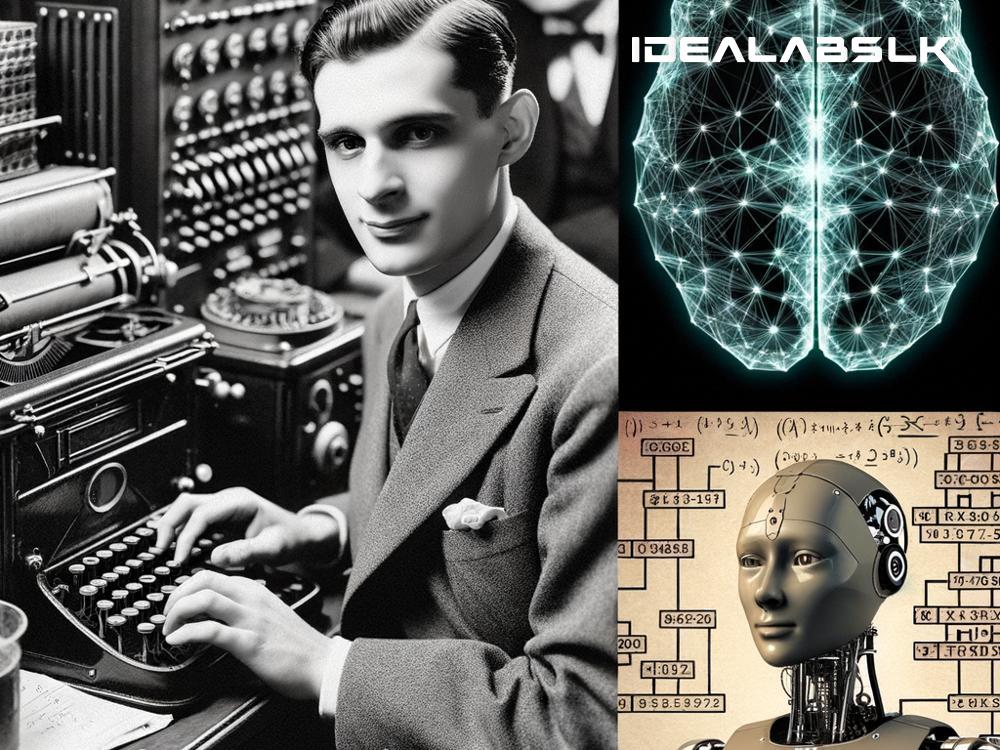Artificial Intelligence, or AI as it's commonly known, sounds like a modern marvel, doesn't it? You might think it's something that popped up recently, a product of the digital age we live in. However, the story of AI starts way back, stretching from the imaginative minds of ancient philosophers to the brilliant brains of today's scientists. Let's embark on a journey through time to explore the fascinating origins of AI, from the ideas of Alan Turing to the advanced technology we see today.
The Early Dreamers
Believe it or not, the concept of artificial intelligence has been around for centuries. Ancient Greek myths tell tales of mechanical men designed to mimic human behavior. Fast forward to the 17th and 18th centuries, and we find inventors creating intricate machines called automata, capable of playing musical instruments or even drawing pictures. These inventions sparked the imaginations of many, making people dream about creating machines that could think and act like humans.
Alan Turing: The Father of Theoretical Computer Science and AI
However, it was during the mid-20th century that AI as we know it started to take shape, thanks to mathematician and logician Alan Turing. Turing was fascinated by the idea of machines that could think. In 1950, he published a groundbreaking paper titled "Computing Machinery and Intelligence," where he proposed the concept of a 'universal machine' that could simulate any other machine's computations. Most importantly, he introduced the Turing Test, a simple yet profound way to measure a machine's ability to exhibit intelligent behavior indistinguishable from that of a human. Turing's work laid the foundational framework for the field of artificial intelligence, earning him the title of the "Father of AI."
The Birth of AI: The Dartmouth Workshop
The term "Artificial Intelligence" was officially coined in 1956, during a historic workshop at Dartmouth College. Organized by John McCarthy, Marvin Minsky, Nathaniel Rochester, and Claude Shannon, this event brought together brilliant minds to discuss and explore the potential of machines to use language, form abstractions and concepts, solve problems reserved for humans, and improve themselves. This workshop is now considered the birth event of AI as a distinct field of study.
Early Enthusiasm and Winters
The years following the Dartmouth conference were filled with optimism. Researchers and scientists believed that creating a fully intelligent machine was just around the corner. This era saw the development of the first AI programs, like the Logic Theorist and ELIZA, which could solve algebra problems and simulate a psychotherapist, respectively. However, the initial excitement was met with hurdles; the complexity of human cognition and the limitations of technology at the time led to "AI winters," periods where funding and interest in AI research significantly decreased.
AI's Renaissance: From the 1990s to Today
It wasn't until the late 1990s and early 2000s that AI began to truly flourish, thanks to advancements in computer technology, the explosion of the internet, and the development of more sophisticated algorithms. Machine learning, a subset of AI where machines learn from data and improve over time, has become particularly transformative. This era has brought us digital assistants like Siri and Alexa, recommendation systems like those used by Netflix and Amazon, and autonomous vehicles that can drive themselves.
Today, AI is integrated into many aspects of our lives, often in ways we don't even realize. It's used in healthcare for predicting patient outcomes, in finance for detecting fraud, and in everyday applications like email spam filters. The possibilities seem endless, and the boundaries of what AI can achieve are continually expanding.
Looking Forward
The journey of AI, from Turing's theoretical machines to today's intelligent systems, has been long and winding. It's a story of human curiosity, ingenuity, and the relentless pursuit of knowledge. As we stand on the cusp of what many believe to be a new era of AI, it's valuable to reflect on the roots of this fascinating field.
So, what's next for AI? The future promises advancements in AI and machine learning that could further blur the lines between human and machine intelligence. However, this future also comes with ethical considerations and challenges that we must navigate carefully. Ensuring that AI benefits society as a whole requires thoughtful discussion and collaboration among technologists, policymakers, and the public.
The story of AI is far from over; in many ways, it's just getting started. From the mythological dreams of ancient civilizations to Turing's conceptual machines, all the way to the AI that powers our everyday lives, the evolution of artificial intelligence is a testament to human creativity and endeavor. As we look ahead, let's continue to approach AI with a sense of wonder, responsibility, and an appreciation for its deep roots in our shared history.

